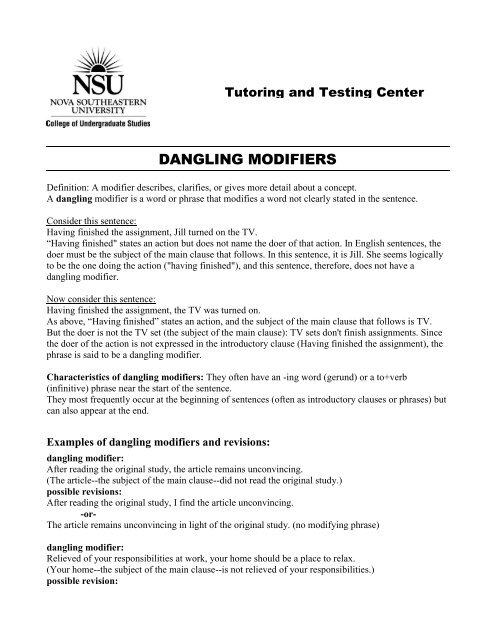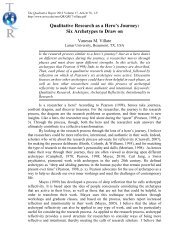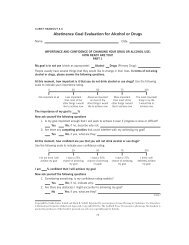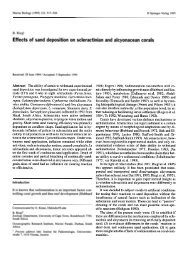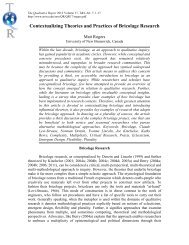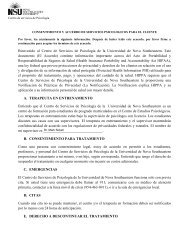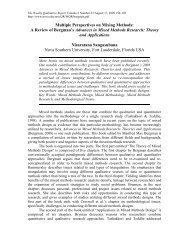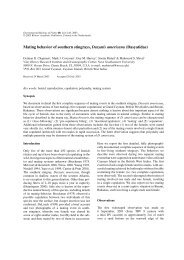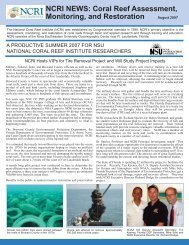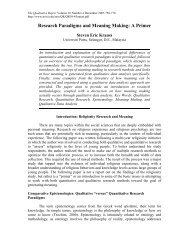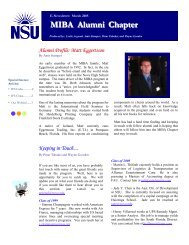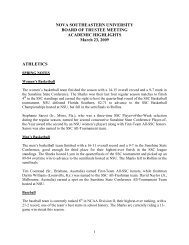Dangling Modifiers
Dangling Modifiers
Dangling Modifiers
Create successful ePaper yourself
Turn your PDF publications into a flip-book with our unique Google optimized e-Paper software.
Tutoring and Testing Center<br />
DANGLING MODIFIERS<br />
Definition: A modifier describes, clarifies, or gives more detail about a concept.<br />
A dangling modifier is a word or phrase that modifies a word not clearly stated in the sentence.<br />
Consider this sentence:<br />
Having finished the assignment, Jill turned on the TV.<br />
“Having finished" states an action but does not name the doer of that action. In English sentences, the<br />
doer must be the subject of the main clause that follows. In this sentence, it is Jill. She seems logically<br />
to be the one doing the action ("having finished"), and this sentence, therefore, does not have a<br />
dangling modifier.<br />
Now consider this sentence:<br />
Having finished the assignment, the TV was turned on.<br />
As above, “Having finished” states an action, and the subject of the main clause that follows is TV.<br />
But the doer is not the TV set (the subject of the main clause): TV sets don't finish assignments. Since<br />
the doer of the action is not expressed in the introductory clause (Having finished the assignment), the<br />
phrase is said to be a dangling modifier.<br />
Characteristics of dangling modifiers: They often have an -ing word (gerund) or a to+verb<br />
(infinitive) phrase near the start of the sentence.<br />
They most frequently occur at the beginning of sentences (often as introductory clauses or phrases) but<br />
can also appear at the end.<br />
Examples of dangling modifiers and revisions:<br />
dangling modifier:<br />
After reading the original study, the article remains unconvincing.<br />
(The article--the subject of the main clause--did not read the original study.)<br />
possible revisions:<br />
After reading the original study, I find the article unconvincing.<br />
-or-<br />
The article remains unconvincing in light of the original study. (no modifying phrase)<br />
dangling modifier:<br />
Relieved of your responsibilities at work, your home should be a place to relax.<br />
(Your home--the subject of the main clause--is not relieved of your responsibilities.)<br />
possible revision:
Relieved of your responsibilities at work, you should be able to relax at home.<br />
dangling modifier at end of sentence:<br />
The experiment was a failure, not having studied the lab manual carefully.<br />
(The experiment--the subject of the main clause--is not supposed to study the lab manual.)<br />
possible revision:<br />
The students failed the experiment, not having studied the lab manual carefully.<br />
Strategies for revising dangling modifiers:<br />
1. Name the appropriate or logical doer of the action as the subject of the main clause:<br />
dangling modifier: Having arrived late for practice, a written excuse was needed.<br />
Who arrived late? This sentence says that the written excuse arrived late. To revise, decide who<br />
actually arrived late.<br />
Example: Having arrived late for practice, Joe Doer needed a written excused.<br />
2. Change the phrase that dangles into a complete introductory clause by naming the doer of the<br />
action in that clause:<br />
dangling modifier: Without knowing his name, it was difficult to introduce him.<br />
Who didn't know his name?<br />
This sentence says that "it" didn't know his name. To revise, decide who was trying to introduce him.<br />
Example: Since Sally Doer didn’t know his name, it was difficult to introduce him.<br />
3. Combine the phrase and main clause into one:<br />
dangling modifier: To improve his results, the experiment was done again.<br />
Who wanted to improve results? This sentence says that the experiment was trying to improve its own<br />
results. To revise, combine the phrase and the main clause into one sentence.<br />
Example: The experiment was done again to improve his results.<br />
Squinting modifiers:<br />
Related to dangling modifiers, squinting modifiers occur when the word modified is not clear or could<br />
have more than one meaning. These problems can usually be solved by rearranging the elements<br />
already present in the sentence.<br />
squinting modifier:<br />
The student I studied with occasionally asked me to cheat.<br />
possible revisions:<br />
The student I occasionally studied with asked me to cheat.<br />
The student I studied with asked me occasionally to cheat.


